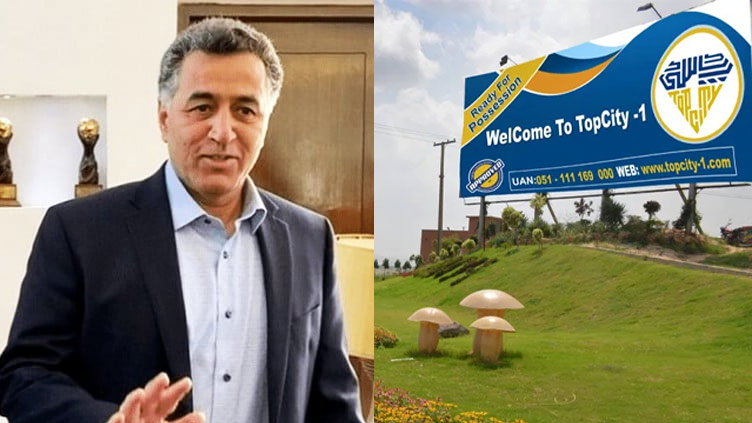What is the story behind Faiz Hameed's Top City case?

Pakistan
SC ruling noted that Hameed was accused of stealing household items and society records
LAHORE (Dunya News/ Web Desk) – Former ISI chief Faiz Hameed has been taken into military custody and court martial proceedings have commenced against him in connection with the Top City case. But what exactly is the Top City case?
The case revolves around a petition filed by Moeez Ahmed Khan, the owner of the Top City housing scheme, in the Supreme Court.
Khan alleged that on May 12, 2017, Pakistan Rangers and Inter-Services Intelligence (ISI) officials raided the Top City office and his residence in connection with an alleged terrorism case.
During these raids, valuables including gold, diamond jewellery and cash were reportedly stolen.
The petition further claims that retired Lt Gen Faiz Hameed’s brother, Sardar Najaf, attempted to mediate and resolve the issue. After acquittal, Hameed reportedly arranged a meeting through his cousin, a serving brigadier in the army, to discuss the matter.
During this meeting, Faiz Hameed assured Khan that they would return 400 tolas of gold and some of the cash seized during the raids.
The petition also accused retired ISI Brigadiers Naeem Fakhar and Ghaffar of coercing Khan into giving a payment of Rs40 million and sponsoring a private channel for several months.
The petition further named former ISI official Irtiza Haroon, Sardar Najaf, Wasim Tabish, Zahid Mahmood Malik, and Muhammad Munir as being involved in the illegal occupation of the housing society.
On Nov 14, 2023, the Supreme Court issued a written decision regarding the case against former ISI DG Faiz Hameed.
The court stated that the allegations were serious and could not be ignored.
According to the court’s decision, Khan and his family were allegedly abducted to facilitate the occupation of Top City, and Hameed was accused of orchestrating the raids on Khan’s office and home.
The Supreme Court's ruling noted that Hameed was also accused of stealing household items and society records.
However, the court concluded that the case did not meet the criteria under Article 184/3 and dismissed the petition against Hameed, advising that the petitioner could move relevant forums for further action against Hameed and other involved parties.


